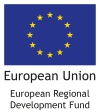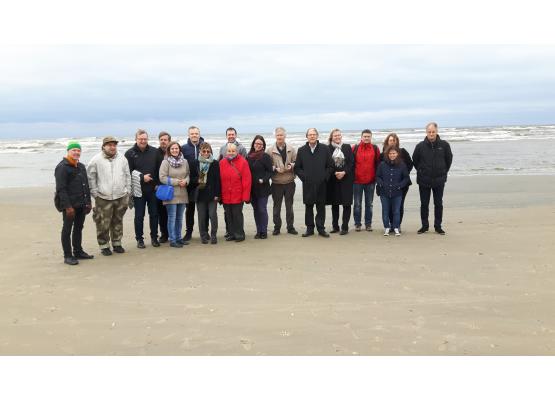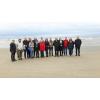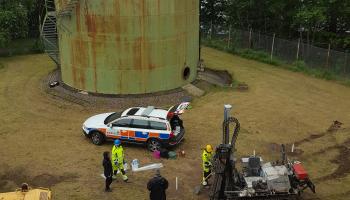P2 Sustainable use of common resources
2.4. Reduced nutrients, hazardous substances and toxins inflow into the Baltic Sea
Central Baltic
01.09.2015 - 31.08.2019
€2 423 009
€1 877 434
The project INSURE aims at decreasing the impact of hazardous substances to the environment from contaminated sites. The idea is to decrease leakage from contaminated sites to ground and surface water to reduce the inflow of hazardous substances and toxins into the Baltic Sea.
In practice the project develops and tests cost effective and sustainable methods to contribute to more sustainable remediation. Additionally, the project focuses on finding more efficient management methods and new solutions for prioritisation, visualisation, registration and information of contaminated sites.
As a result of the project best practice for remediation and sustainable solutions is worked out for contaminants. The project contributes to the result through sustainable remediation, management methods and innovative technical tools for visualisation. Five contaminated areas in Sweden, Finland and Latvia are used as pilot areas to test different on-site remediation techniques, demonstrate their sustainability and cost effectiveness compared to present excavation of contaminated sites. Using innovative tools for visualisation of contaminated sites results in a better overview and knowledge of contaminated sites. All in all, the project creates solutions for reducing the transport of hazardous substances to the Baltic Sea.
Länsstyrelsen Östergötland
Country: SE
http://www.lansstyrelsen.se/ostergotland/
Partner budget: 924.468 EUR
Amount of ERDF funding: 693.351 EUR ERDF
Latvijas Vides, ģeoloģijas un meteoroloģijas centrs
Country: LV
Partner budget: 242.259 EUR
Amount of ERDF funding: 205.920 EUR ERDF
Motala kommun
Country: SE
Partner budget: 405.944 EUR
Amount of ERDF funding: 304.458 EUR ERDF
Populus group Oy
Country: FI
Under construction
Partner budget: 141.390 EUR
Amount of ERDF funding: 106.042 EUR ERDF
Vidzemes plānošanas reģions
Country: LV
Partner budget: 229.589 EUR
Amount of ERDF funding: 195.151 EUR ERDF
Helsingin yliopisto
Country: FI
http://www.helsinki.fi/ymparistotieteet/english/
Partner budget: 349.438 EUR
Amount of ERDF funding: 262.078 EUR ERDF
Valmieras pilsētas pašvaldība
Country: LV
Partner budget: 129.921 EUR
Amount of ERDF funding: 110.433 EUR ERDF
Achieved results
INSURE - New methods to prevent hazardous substances from reaching the Baltic Sea
The project “Innovative Sustainable Remediation” (INSURE), with project partners from Sweden, Latvia and Finland, aimed to improve and increase the rate of remediation of contaminated sites and thereby decreasing the hazardous substances and toxins into the Baltic Sea. Currently the most common treatment for contaminated areas is excavation, where contaminated masses are removed and transported away for treatment or final storage. This not is considered sustainable because of the CO2 emissions created to transport both clean and contaminated masses.
The project worked in three areas:
- Testing different methods in pilot areas
The project tested various so called in situ methods in eight pilot areas (Motala in Sweden; two pilot sites in Valmiera, Latvia; Janakkala, Nastola, Virrat, Loppi and Karjaa in Finland). Each pilot area had different historic contaminants. Therefore suitable sustainable techniques for each site were tested, and knowledge and experience was gathered what method would be suitable at what type of site. Examples of techniques used are bio-stimulation, electro-kinetic pumping, fenton reaction and phytoremediation.
- Supervision and enforcement
During the project, new methods have been developed and used to improve the work of supervision and enforcement. Supervision and enforcement are necessary tools for authorities to achieve increased rate of remediation of contaminated sites.
- A series of documents were prepared on this topic (for example: self-monitoring of contaminated sites in Sweden, Handbook including checklist and methodology for supervision and enforcement in operation, etc.).
- Strategies also have been developed to more efficiently handle areas that are complex because of e.g. their size, diversity of contaminants, property owners and responsibility.
- Furthermore, a tool for enterprises has been developed; A Plan of action, that describes how to continuously self-monitor the work with their contaminated site. Within INSURE, the County Administrative Board of Östergötland and Motala Municipality have participated in this activity together with 28 enterprises.
- Technical tools for visualisation
As contaminated areas often are complex with several contaminants in different media like soil, ground- and surface water, sediments and buildings, there is a need to find better tools for prioritisation and visualisation of the sites to support the work. During the project, a database of contaminated sites was developed in Latvia. Another example is new GIS tools that support the visualisation of the contaminated sites. All project experience for visualisations of contaminated sites and developed tools are available in the project website.
Project website: www.insureproject.se
- 7 sources of hazardous substances was worked with that improved the situation in the Baltic Sea.
- 8 pilot areas in three countries. In 7 of those the project received successful results.
- Improved methods for supervision and enforcement was developed for better management
- Technical tools for visualisations was developed







